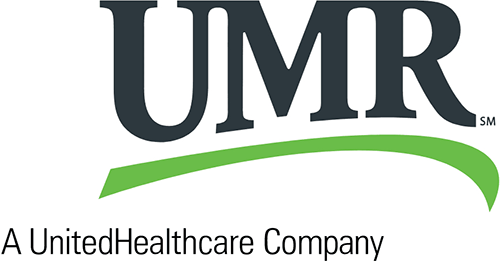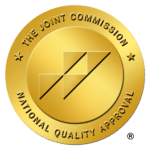Addiction recovery is a journey that does not occur in isolation. The American Psychiatric Association emphasizes the significant impact of social support on successful abstinence and long-term wellness. This blog post examines the crucial role of family involvement in addiction recovery, from behavior therapy to developing coping strategies. It explores various family therapy approaches and the integration of support systems within the community. Readers will understand how these elements contribute to combating relapse, strengthening resilience, and fostering an environment conducive to recovery. Addressing these challenges, the content will equip families with the knowledge to support their loved ones effectively on the path to sobriety.
Key Takeaways
- Family dynamics significantly influence addiction and recovery processes
- Effective family therapy approaches are diverse and tailor to individual family needs
- Involving the entire family in treatment improves the recovery success rate
- Ongoing family education and support are crucial for long-term recovery maintenance
- Professional guidance helps families navigate the challenges of addiction recovery
Understanding the Importance of Family Involvement in Addiction Recovery
When one family member battles addiction, the entire unit often feels the strain, signaling a clear need for comprehensive recovery strategies. Family dynamics can play a substantial role in substance abuse, and the National Institutes of Health endorses family participation as beneficial for treatment programs. This approach not only aids recovery but potentially fortifies the family’s collective resilience. Yet, families frequently encounter barriers such as fear, lack of health insurance, and uncertainty about the process. Addressing these challenges is vital in leveraging the therapeutic potential of marriage and familial bonds within recovery programs.
How Addiction Affects the Entire Family Unit
When a mental disorder like addiction takes hold, it doesn’t discriminate, causing pain and frustration for every person connected to the patient. In the chaos of coping with addiction, families often find their communication skills strained and their emotional bonds tested. Professional family therapy can equip relatives with the skills to navigate the complexities of addiction, fostering an environment where both the patient and the family unit can heal together.
The Role of Family Dynamics in Substance Abuse
Family dynamics significantly influence the development and continuation of substance use disorders. A stable, nurturing environment may serve as protective against the development of addictions, while familial conflicts and traumatic interpersonal relationships can exacerbate the risk of an individual engaging in substance abuse. In substance abuse treatment, incorporating family therapy can help rectify the dysfunctional interactions and establish contingency management strategies, which reward positive behaviors and reduce the occurrence of substance use. Through this integrated approach, families learn to create a supportive home environment that is conducive to long-term recovery from addiction.
Benefits of Family Participation in Treatment Programs
Family participation in treatment programs is a guiding force that can significantly enhance the chances of addiction recovery. Involvement rooted in the framework of the Diagnostic and Statistical Manual of Mental Disorders, often involves psychoeducation, designed to enlighten family members on the intricacies of addiction, enabling them to offer better support. Experiences of shared learning and understanding foster environments where sobriety becomes a collective objective rather than an individual struggle. With family therapy, recovery goals align, and the patient receives a stable platform for rehabilitation, surrounded by informed, supportive loved ones who are actively engaged in their journey.
By incorporating family members into treatment programs, patients are often better equipped to resist the relapse triggers that they face outside of treatment settings:
- Family involvement responds directly to the need for a strong support network, which is crucial for maintaining sobriety.
- Psychoeducation empowers families with knowledge, transforming them into enablers of positive change and sobriety-focused lifestyles.
- Active family engagement in therapy aligns with the principles of the Diagnostic and Statistical Manual of Mental Disorders, optimizing the therapeutic outcomes for the individual suffering from addiction.
Overcoming Common Barriers to Family Involvement
Overcoming the barriers to family involvement in the recovery journey from addiction is critical. The disease of addiction can cause families to experience feelings of shame, neglect, and a hesitance to seek help due to societal stigma associated with substance misuse. Professionals can guide families by asserting that active participation is a goal that paves the way for healing, offering practical solutions such as family education programs and support groups that help mitigate these barriers:
- Education programs address the lack of understanding about addiction as a disease, changing perceptions and reducing stigma.
- Support groups provide a platform for families to share experiences and learn from others who have faced similar issues of neglect and substance misuse.
- Resources explaining insurance and treatment options help families overcome financial and logistical obstacles that previously hindered their involvement in the recovery process.
Exploring Different Family Therapy Approaches for Addiction
Families seeking help with an alcoholic family member may find solace in various effective family therapy models. Cognitive-Behavioral Family Therapy techniques delve into the complex emotions of shame, resentment, and guilt that often accompany addiction. Meanwhile, Multidimensional Family Therapy offers specialized guidance for adolescents. Strength-based approaches in family counseling focus on the innate resources of the family unit, empowering them to foster recovery. Understanding these diverse methods and selecting the right therapy approach can be instrumental in not only individual recovery but in healing the family as a whole.
Overview of Effective Family Therapy Models
Effective family therapy models integrate a comprehensive understanding of the experience of addiction, addressing key aspects such as forgiveness and communication within the system of marriage and familial relationships. Research, cataloged on platforms like PubMed, highlights the success of marriage and addiction counseling in reinforcing sobriety and maintaining long-term recovery. These models often prioritize the rebuilding of trust and the handling of complex family dynamics, equipping families with strategies for sustainable support and healing.
Cognitive-Behavioral Family Therapy Techniques
Cognitive-Behavioral Family Therapy (CBFT) techniques are an essential facet of strategic family therapy, addressing the interrelated behaviors and emotions of those affected by addiction. This therapeutic approach enables caregivers and parents to identify the signs and symptoms of substance use disorders and understand the thought patterns contributing to these behaviors. Professionals in the field use CBFT to impart knowledge and coping strategies that promote healthier interactions and support systems within the family, underlining the role of a supportive environment as an anchor in the journey towards recovery.
Multidimensional Family Therapy for Adolescents
Multidimensional Family Therapy (MDFT) for adolescents is a comprehensive psychotherapy approach that harnesses family engagement to combat substance abuse. Grounded in systems theory, MDFT addresses the intricate web of cognition, behavior, and emotional regulation within the context of the family unit. This form of therapy actively involves caregivers in the treatment process, fostering a supportive environment aimed at reducing not only substance use but also co-occurring issues like violence. The therapy creates a platform where the young person can develop healthier coping mechanisms and decision-making skills, with the family acting as an ally in their recovery journey.
Strength-Based Approaches in Family Counseling
Strength-based approaches in family counseling underscore the positive attributes and resources within the family to bolster addiction support. By emphasizing accountability and tapping into existing family competencies, such as communication skills or resilience, professionals can cultivate an environment conducive to recovery. Methods like art therapy and group psychotherapy are incorporated alongside medication management to create a multifaceted treatment plan that recognizes and utilizes the family’s inherent strengths.
Here is an overview of how strength-based strategies can enhance the support system for those overcoming addiction:
- Accountability is fostered as family members learn to support each other’s commitments to recovery.
- Through art therapy, individuals express complex emotions and experiences, thereby enhancing mutual understanding within the family.
- Group psychotherapy sessions provide a space for families to connect and learn from others, reinforcing communal strength.
- Medication, when used appropriately, is managed within the family context to ensure adherence and support physical health aspects of recovery.
Selecting the Right Therapy Method for Your Family
Identifying the most suitable family therapy approach for addiction hinges on understanding the unique mental health challenges, drinking behaviors, and motivation levels within the family unit. For instance, American Addiction Centers offer diverse therapy options tailored to individual needs, drawing on best practices that may resonate more with certain families than the broad support groups like Alcoholics Anonymous. A careful assessment by a seasoned therapist can guide families to the therapy method that will optimize interpersonal dynamics and bolster the recovery journey, specifically tailoring interventions to address the complex intersection of mental health and substance use.
Consider the following when evaluating therapy options for your family:
| Therapy Approach | Focus | Best For |
|---|---|---|
| Cognitive-Behavioral Family Therapy | Behavioral patterns and thought processes | Families in need of communication skills and coping strategies |
| Multidimensional Family Therapy | Adolescent substance abuse | Families with teenagers navigating mental health and addiction |
| Strength-Based Family Counseling | Utilizing inherent family strengths | Families seeking to build resilience and support recovery |
Implementing Family Support Strategies During Recovery
As families navigate the arduous path of addiction recovery, employing effective support strategies is paramount. This includes mastering the art of communication with a loved one in recovery, setting healthy boundaries and expectations, and promoting positive behavior change. Furthermore, accessing community resources and support groups provides necessary reinforcement, especially for issues like problem gambling. Ensuring these methods are in place supports the health and well-being of the individual, while feelings of cohesion and purpose within the family unit are strengthened. Each following section examines these vital components that contribute to enduring recovery.
Communicating Effectively With a Loved One in Recovery
Effective communication with a loved one in recovery is a cornerstone of familial support, particularly in the dynamics of addiction recuperation. Approaching an individual with compassion, active listening, and an open mind frequently requires support from a licensed professional counselor. Families seeking help for alcoholics’ family members may find value in programs that offer guidance from a mental health counselor, illuminating pathways to understanding and strengthening relational bonds. Such professional exposure equips families with techniques that prove essential for clear, empathetic, and productive dialogue, thereby promoting healthier interactions that support the recovery process.
Establishing Healthy Boundaries and Expectations
Establishing healthy boundaries and expectations is crucial in the context of rehab and recovery from alcohol addiction. Those who have experienced the chaos of loving someone with an addiction, particularly in cases that may have led to detrimental behaviors like drunk driving, understand the importance of setting clear limits with empathy. Professionals in the field emphasize that such boundaries not only protect family members but also provide a structured, supportive environment where the recovering individual can learn to navigate life without reliance on substances.
Encouraging Positive Behavioral Changes
Encouraging positive behavioral changes in a loved one dealing with addiction involves more than hopeful wishes—it requires a structured approach, such as SMART Recovery, that can facilitate personal growth and development. Interventions grounded in active listening and understanding can reinforce behavior modification and solidify addiction family support. For instance, when family members utilize active listening strategies during intervention sessions, they foster a supportive atmosphere that shows empathy and respect for the individual’s struggles, greatly enhancing the potential for sustainable recovery.
The incorporation of proven behavior change techniques can lead to beneficial outcomes for those in recovery and their loved ones:
| Behavioral Strategy | Objective | Benefit |
|---|---|---|
| SMART Recovery Principles | Empowering self-reliance | Boosts personal responsibility and confidence |
| Structured Interventions | Communicating the need for change | Clarifies the expectations and support available |
| Active Listening Techniques | Understanding the individual’s perspective | Strengthens trust and facilitates open dialogue |
Accessing Community Resources and Support Groups
Accessing community resources and support groups is a critical strategy for managing the risk of relapse in addictive behavior. The Substance Abuse and Mental Health Services Administration (SAMHSA) offers numerous resources that can guide families towards effective marriage addiction counseling and therapy for family of addicts. These services can be invaluable in providing education, support, and connection to others who understand the challenges faced when a loved one struggles with addiction.
| Resource | Description | Benefit |
|---|---|---|
| SAMHSA’s National Helpline | Confidential, free, 24/7 information service | Immediate assistance and guidance to treatment options |
| Local Support Groups | Regular meetings for families and individuals affected by addiction | Shared experiences, coping strategies, and community support |
| Therapy Sessions | Professional counseling tailored to families dealing with addiction | Tools for communication, relationship repair, and ongoing support |
Maintaining Long-Term Support and Encouragement
Maintaining long-term support and encouragement is critical in the context of Subtance Use Disorder (SUD) treatment. Effective conflict resolution and emotion regulation techniques, grounded in psychological principles, provide a foundation for ongoing success in recovery. As families continue to apply problem-solving strategies, they become adept at addressing challenges, thus fostering an atmosphere of steady support that fortifies the individual against relapse. Professional guidance in these areas assures that the methods employed are appropriate and tailored to the family’s dynamics, ensuring an enduring impact on the individual’s journey towards sustained wellness.
Addressing Challenges and Relapse Prevention Together
Addressing the challenges associated with addiction recovery, families are essential in recognizing early warning signs of relapse and developing proactive relapse prevention plans. Managing triggers, stress, and anger within a safe space enables families to support their loved ones with dual diagnosis effectively. By leveraging strategies such as dialectical behavior therapy, families can rebuild trust, repair relationships, and celebrate recovery milestones — all key factors in bolstering confidence and preventing relapse.
Identifying Early Warning Signs of Relapse
In the journey of addiction recovery, a crucial aspect that families and mental health professionals work on is identifying early warning signs of relapse. Recognizing these signs early contributes significantly to effective relapse prevention, ensuring that recovery support mechanisms, like peer groups, can intervene constructively. Key indicators might include a decline in attendance at therapy sessions or peer group meetings, suggesting a weakening of the therapeutic alliance. Actively engaging in these supportive networks equips family members to notice changes in behaviors or attitudes that could precede a relapse.
The table outlines indicators that family members, in collaboration with mental health professionals, can monitor as part of a comprehensive relapse prevention strategy:
| Early Warning Sign | Indicator Description | Preventive Action |
|---|---|---|
| Decreased Engagement | Lack of participation in recovery activities or peer support groups | Encourage re-engagement and discuss obstacles with a mental health professional |
| Isolation Tendencies | Withdrawal from social interactions and support networks | Facilitate social integration and regular check-ins with a peer group |
| Negative Emotional States | Increased feelings of anxiety, depression, or irritability | Immediate communication with therapeutic support for intervention |
Developing a Family Relapse Prevention Plan
Creating a robust family relapse prevention plan is critical to maintaining adherence to addiction recovery goals. This strategy, often informed by multisystemic therapy principles, centralizes the role of family in sustaining long-term sobriety. Through family therapy, all members learn to direct their attention to identifying potential relapse triggers, developing communication channels that ensure immediate action is taken should warning signs emerge. This collective vigilance underlines the importance of the familial support system in reinforcing the resilience necessary to overcome the challenges of addiction.
Managing Triggers and Stress as a Family
Within the dynamic environment of a stepfamily, managing triggers and stress necessitates a tailored approach grounded in SAMHSA-endorsed research and behavior change theories. Practical feedback mechanisms can be pivotal, allowing family members to express concerns and collaborate on effective stress-management strategies without judgment. This proactive engagement fosters a supportive atmosphere that mitigates the impact of potential triggers, contributing significantly to the recovery journey.
Here is an example of how a family might track and manage triggers and stress, facilitating constructive feedback and behavior change:
| Trigger or Stressor | Family Member’s Feedback | Behavior Change Strategy |
|---|---|---|
| Social Gatherings | “I feel overwhelmed at parties where alcohol is present.” | Plan alternative activities or establish a buddy system to attend events. |
| Work Stress | “Deadlines and pressure at work leave me anxious.” | Introduce family stress-relieving routines like evening walks or meditation sessions. |
| Stepfamily Dynamics | “Adjusting to new family roles causes tension.” | Implement regular stepfamily meetings to discuss roles and expectations openly. |
Rebuilding Trust and Repairing Relationships
At the heart of healing within addiction recovery is the mending of trust and the restoration of damaged relationships. Family therapy becomes critical, offering a structured space for honest conversation that acknowledges past hurt and lays the groundwork for reconciliation. By actively addressing patterns of codependency and fostering family support in recovery, individuals and their families can navigate the stress associated with substance misuse, strengthening familial bonds through open dialogue and mutual commitment to healing.
Celebrating Milestones and Progress in Recovery
Celebrating milestones and progress in addiction recovery fosters an atmosphere of positivity that can be particularly powerful in the context of opioid recovery, where challenges are abundant and every step forward matters. Acknowledging achievements through methods like rational emotive behavior therapy encourages the individual to continue developing healthier thought patterns and behaviors, while cognitive-behavioral therapy actively supports skill-building to handle life stressors without reverting to substance use. This recognition can also help individuals and families cope with the grief of what has been lost to addiction, reinforcing their resilience and unified commitment to sobriety.
Recognizing milestones contributes to a cycle of positive reinforcement and empowerment:
- Rational emotive behavior therapy shapes an individual’s outlook, substituting self-defeating thoughts with empowering beliefs.
- Cognitive-behavioral therapy equips individuals with practical tools to manage triggers and maintain progress, mirroring the stages of overcoming opioid addiction.
- Family gatherings to commemorate sobriety milestones, anniversaries, or treatment completions can bridge the grief experienced from past losses, strengthening family bonds in the process.
Supporting Children and Adolescents in Affected Families
Addressing the nuanced needs of children and adolescents within families grappling with addiction is crucial in fostering healthy development and long-term recovery. This section of the article examines strategies for recognizing and mitigating the impact of parental addiction on youth, providing emotional support, and involving young family members in therapy sessions. It offers insights into drug education, applying motivational interviewing techniques, and leveraging insurance and educational resources for learning. The content also highlights the importance of imparting resilience and healthy coping skills, aligning with broader family support systems to enhance recovery outcomes.
Recognizing the Impact of Parental Addiction on Youth
Parental addiction often incubates a dysfunctional family environment, where children navigate the complexities of unpredictable behavior, emotional absence, and inconsistent discipline. These young members of the family may develop sleep disturbances, academic challenges, and social withdrawal. Providing help for families of alcoholics, including addict family support groups, as well as interventions like naltrexone when appropriate, can mitigate these adverse effects and foster resilience in the young, ensuring they receive the comprehensive care vital for their well-being.
The effective engagement of addict family support groups may look like this:
| Family Support Group Component | Role in Addressing Impact | Example of Support for Youth |
|---|---|---|
| Educational Workshops | Explains addiction’s effects on family dynamics | Workshops that teach coping strategies for stress and promote regular sleep patterns |
| Peer Support Networks | Provides a platform for shared experiences and emotional support | Youth meetings fostering connection with peers in similar situations |
| Access to Therapeutic Resources | Offers strategies for emotional regulation and professional guidance | Referrals to therapies, including pharmacotherapy with naltrexone if clinically indicated |
Providing Emotional Support to Children
Offering targeted emotional support to children affected by a sibling or parent’s drug addiction is an integral component of national drug addiction family support initiatives. Therapists emphasize the significance of cultivating a compassionate environment where young individuals can voice their fears and find solace. Such emotional reinforcement empowers children and helps them develop resilience against the turbulence that often accompanies living with addicts, enabling them to pursue their own path towards emotional well-being and stability.
Involving Children in Family Therapy Sessions
Including children in family therapy sessions at a treatment center is essential, particularly when addressing issues that impact the extended family. By actively engaging young members, therapists can help them express their anxiety and fears related to having a loved one struggling with addiction or a dual diagnosis treatment. This inclusive approach encourages healthy communication and equips children with coping mechanisms to navigate their unique familial challenges.
The following table illustrates the benefits of involving children in family therapy sessions:
| Benefit of Involvement | Impact on Child | Impact on Family Recovery |
|---|---|---|
| Expression of Anxiety | Children learn to voice their concerns and fears in a safe environment. | Therapy is more comprehensive, addressing the needs of all family members. |
| Understanding Addiction | Gaining knowledge about the recovery process helps demystify their loved one’s behavior. | Shared understanding among extended family members supports unified recovery efforts. |
| Coping Strategies | Development of effective mechanisms for dealing with family stress related to addiction. | Healthier family dynamics assist in sustaining long-term recovery from substance abuse. |
Educational Resources for Young Family Members
Providing young family members with access to education that covers topics such as nutrition and brain health, management of emotional stress, and mental health services can solidify their understanding of the recovery family concept. This educational foundation not only equips them with knowledge but also empowers them to support their loved ones during the recovery process. Tailoring resources to be age-appropriate and engaging ensures that children and adolescents can effectively contribute to creating a nurturing home environment that is conducive to lasting recovery.
Promoting Resilience and Healthy Coping Skills
Facilitating resilience and healthy coping skills in children and adolescents involves the strategic use of support groups for addicted family members, which can act as a bulwark against the detrimental effects of substance-related challenges in the home. Interventions offered by psychiatrists often include family-focused treatments that teach young individuals how to deal with loneliness and the fear of relapse. Support groups provide a shared space where they can connect with others facing similar difficulties, fostering an understanding that they are not alone and equipping them with practical strategies to sustain their emotional and psychological well-being.
To illustrate the impact of such support structures on young family members:
| Aspect of Resilience | Support Strategy | Outcome for Youth |
|---|---|---|
| Emotional Well-being | Participation in Family Support Groups | Reduction in feelings of isolation, enhanced coping with stress |
| Psychological Strength | Guidance from Psychiatry Professionals | Better emotional regulation and a comprehensive understanding of addiction |
| Relapse Prevention | Relapse Prevention Education | Preparedness to face potential substance use situations with confidence |
Seeking Professional Help and Next Steps for Families
Seeking professional help is a critical step for families dealing with the repercussions of substance abuse or alcohol addiction. This subsection outlines practical steps for finding qualified family therapists specializing in addiction, preparing for the initial therapy session, and setting achievable goals for therapeutic outcomes. It also addresses the importance of continuing care and follow-up support, providing a roadmap for families committed to empowering their collective journey toward recovery.
Finding Qualified Family Therapists Specializing in Addiction
Securing the services of a qualified family therapist with expertise in addiction can be transformative for individuals and their loved ones seeking full recovery. These professionals hold the specialized skills to navigate the complex interplay between family dynamics and substance use, offering approaches that are tailored to the family’s unique situation. It’s recommended that families seek therapists who are credentialed through reputable organizations, this ensures the therapist has a demonstrated track record of helping families rebuild stronger, healthier relationships on the path to long-term sobriety.
Preparing for Your First Family Therapy Session
Approaching the initial session of family therapy requires thoughtful preparation to create a foundation for effective addiction recovery support. It’s advisable for families to openly discuss expectations, concerns, and goals beforehand, fostering a positive mindset towards collaborative change. The therapist will likely facilitate an environment where each member can share their experiences without fear of judgment, aiding the healing process while respecting individual boundaries. Entering with a willingness to listen and engage can significantly impact the success of therapy, setting the stage for improved communication and a stronger, united approach to overcoming addiction within the family.
Setting Realistic Goals for Therapy Outcomes
Setting realistic goals for therapy outcomes is pivotal for families in the addiction recovery process, as it frames the journey with achievable milestones and provides clarity on the path forward. It is essential for therapists and families to acknowledge the multifaceted nature of addiction and establish objectives that are specific, measurable, and tailored to the individual’s situation. Effective goals might include improving communication within the family, developing healthy coping mechanisms, or achieving certain sobriety milestones, all of which should be approached with flexibility and a readiness to adapt as therapy progresses:
- Enhanced family communication patterns to support the recovery environment.
- Developed resilience against addiction triggers through family unity and education.
- A clear plan for handling potential relapses, emphasizing prevention and rapid response.
Continuing Care and Follow-Up Support
Continuing care and follow-up support are vital components in the web of addiction recovery, serving as the bedrock for sustained sobriety and the fortification of family bonds post-therapy. The success of this phase often hinges on regular check-ins with addiction specialists and ongoing participation in support groups, ensuring that both individuals and their families remain connected to a community that understands the nuances of recovery. This practice not only reinforces the coping strategies and communication skills cultivated during therapy but also provides a safety net to effectively manage the challenges and stresses that may arise, propelling families towards a resilient and sober future.
Empowering Your Family's Journey Toward Recovery
Empowering a family’s journey toward recovery begins with a shared commitment to seeking professional guidance and embracing the support that therapy offers. When families engage in therapeutic practices with a qualified addiction specialist, they create a robust foundation that navigates the complexities of substance abuse together. This collaborative approach fosters an environment where open communication, mutual support, and compassion become the cornerstones of healing, leading individuals and their loved ones through a transformative recovery process.
Conclusion
Family involvement in addiction recovery is not only beneficial but essential, as it provides a critical support network that can significantly boost the chances of successful treatment and long-term sobriety. Through various family therapy approaches, such as Cognitive-Behavioral Family Therapy, Multidimensional Family Therapy for adolescents, and strength-based counseling, families are equipped with strategies to support their loved ones effectively. Overcoming the common barriers to family involvement, like stigma and financial constraints, is necessary to utilize fully the therapeutic potential of family bonds. Ultimately, family therapy and support play a transformative role in addiction recovery, reinforcing the family unit’s capacity to aid in healing and empowering individuals as they navigate the complex journey towards wellness.













